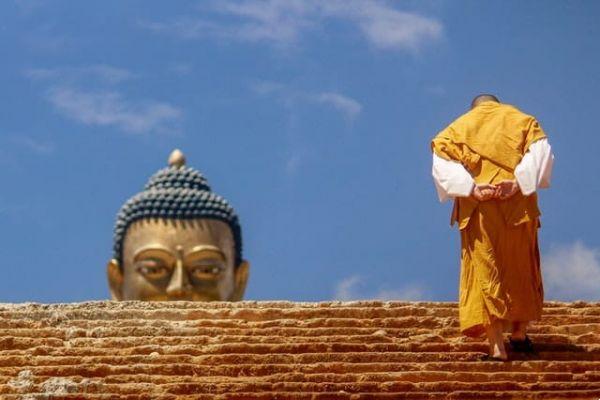Buddhism is a philosophy and religion based on the teachings of Siddhartha Gautama, the buddha (the “Enlightened One”, the one who has awakened from the sleep of ignorance). Emerged in India around the XNUMXth century BC, it spread especially in Asian countries, with different currents.
Among the various precepts, the most widespread in the Western world is the notion of karma, but this notion has been quite distorted, popularly understood as a repetition of bad events in one's life or as “fate” (something unchangeable). But the notion of karma goes beyond this simplification.
Buddhists believe that there is a cycle of rebirth, called samsara, which is the perpetual repetition of the birth and death of beings, only he who acquires perfect wisdom or becomes enlightened becomes a Buddha and is free from the wheel of transmigration.

Karma is the law of causality, is the force of samsara on someone. Its original meaning is “actions” and it is considered as a kind of latent, potential force, resulting from acts performed in the past. According to this law, all actions, thoughts or words (good or bad) have a dynamic force, which is expressed in successive existences. That is, each of our actions results, depending on its nature, in suffering or pleasure, powerfully influencing our future lives. This is a purely impersonal process, which is part of the universe.
We create karma and receive its influence every moment. As it is an action, karma is not an immutable, rigid “destiny”, as it can be modified throughout life. You can change the course of your life from now on by changing your intentional acts and self-destructive patterns!
Being an energy, generated by actions, words or thoughts, what is generated in the now will affect the future. All we need is to consciously live in the present moment with mindfulness and compassion to discover our true nature. For example, if anger, greed and hurt are present in your everyday life, you are conditioning your mind and emotions to vibrate only in these negative frequencies. On the other hand, if you strive to react to things calmly and peacefully, seeking to understand everything around you with a heart full of compassion, you condition your mind to live in this state of serenity and full acceptance.
All mental qualities and all emotions, positive or otherwise, are present in our lives from birth. If we develop positive qualities, we raise our vibration, otherwise, we will only vibrate negativity, which will certainly attract more difficult things to us. Living with mindfulness, we become aware of the conditioning we create and nurture, making the way we react to situations much clearer.
O mindfulness exercise gives us the possibility to choose, with total clarity and lucidity, which mental qualities and emotions should be strengthened. Thus, we free ourselves from repetitive reactions and conditioned patterns of thought and emotions. Mindfulness is a practice that requires real commitment and engagement, it requires persistence and discipline.
You might also like:
- Watch out for the 12 laws of karma that will change your life
- Learn all about positive and negative karma!
- Learn to Heal Your Family by Breaking Hereditary Patterns
Factors outside of you will continue to arise and affect your life, but by understanding karma, through the exercise and development of mindfulness, we see that it actually allows us to take control of our lives. We can let go of old patterns, actually concluding that true happiness lies within us. Thus, we come to the point of experiencing life fully, regardless of what is happening around us.
References
Buddhism – https://pt.wikipedia.org/wiki/Buddhism;
“O Buda eo Budismo” – Maurice Percheron – Editions du Seul;
“A Doutrina de Buda” – Bukkyo Dendo Kyokai.

























